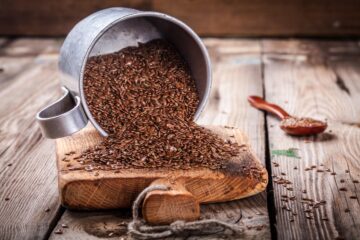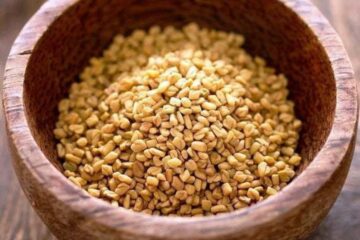Name:
Description:
Origin and Distribution:
Cultivation and Care:
Harvesting and Storage:
Uses:
Culinary Uses: Dandelions can be used in salads, soups, jellies, pesto, and wines. Young leaves are ideal for salads and can be sautéed like spinach. Source: The Old Farmer’s Almanac, URL: https://www.almanac.com/content/dandelion-recipes-wonderful-edible-weed.
Medicinal Uses: Dandelions are a source of vitamins A, C, K, folate, calcium, and potassium. They may provide antioxidants, reduce inflammation, manage blood pressure and blood sugar, and lower cholesterol.
- Gastrointestinal Disorders: Dandelion has a long history of use in treating digestive disorders like dyspepsia, anorexia, stomach disorders, gastritis, and enteritis. It also addresses complex ailments involving the liver and lungs. The bioactive components of dandelion that contribute to gastrointestinal protection include taraxasterol, taraxerol, caffeic acid, chicoric acid, chlorogenic acid, luteolin, polysaccharides, inulin, and β-sitosterol. These substances exhibit pharmacological effects against a variety of gastrointestinal disorders, including dyspepsia, gastroesophageal reflux disease, gastritis, ulcerative colitis, liver diseases, gallstones, and gastrointestinal malignancies. The molecular mechanisms underlying these effects may involve anti-inflammatory and antioxidant actions, apoptosis, autophagy, and cholinergic mechanisms.
- Cardiometabolic Health: In vitro and in vivo studies suggest that dandelion has lipid-lowering, hepatoprotective, antiviral, anticoagulant, diuretic, anti-inflammatory, and antioxidant activities. These properties make dandelion potentially beneficial for conditions like high cholesterol, liver disorders, hypertension, and inflammation-related diseases. The diuretic effect of dandelion, attributed to its high potassium content, may be particularly relevant in managing conditions like hypertension. Dandelion leaf extract showed hepatoprotective effects in murine models of diet-induced fatty liver disease, suggesting potential benefits in managing liver health and related metabolic disorders.
- Cancer: Dandelion root extract has demonstrated anticancer effects against various cancer cell lines, including melanoma, leukemia, pancreatic, and colorectal cancers. It’s important to note that while these results are promising, they are predominantly from preclinical studies. Clinical trials are essential to validate these findings and to determine the conditions under which dandelion may be safe and effective for cancer treatment. Additionally, the presence of estrogenic activity in dandelion indicates a need for caution, especially in hormone-sensitive conditions.
Other Uses: Dandelions are used in making soap, salves, and as forage for herbivore pets. They can also be used as a soil amendment in agriculture.
Medicinal Uses of Dandelion (Taraxacum officinale):
- Anti-Inflammatory and Antioxidant Properties: Research indicates that Dandelion has potential anti-inflammatory and antioxidant properties. A study published in the International Journal of Molecular Sciences found that dandelion extracts effectively suppressed inflammatory markers in cells. The study suggested that dandelion might be useful in preventing inflammation-related disorders (source: International Journal of Molecular Sciences, URL: https://www.mdpi.com/1422-0067/20/2/422).
Dandelion’s antioxidant abilities are mostly attributed to the presence of phenolic compounds, such as flavonoids, which have been proven to fight against oxidative stress in the body. A study published in Nutrients reported that these compounds contribute to neutralizing harmful free radicals, thereby potentially lowering the risk of chronic diseases (source: Nutrients, URL: https://www.mdpi.com/2072-6643/12/2/292).
- Liver Health: Dandelion has long been used in traditional medicine as a liver tonic. Recent studies have found evidence to support this use. A study from the Journal of Ethnopharmacology demonstrated that dandelion extract could protect against liver fibrosis in mice (source: Journal of Ethnopharmacology, URL: https://www.sciencedirect.com/science/article/abs/pii/S0378874112008771). However, more human studies are needed to confirm these findings.
- Diuretic Effects: Dandelion is also well-known for its diuretic effects. A study published in the Journal of Alternative and Complementary Medicine demonstrated that dandelion leaf extract increased the frequency of urination in human subjects. This could potentially assist in eliminating excess fluid from the body, a common issue in conditions like heart failure and some kidney disorders (source: Journal of Alternative and Complementary Medicine, URL: https://www.liebertpub.com/doi/10.1089/acm.2008.0152).
- Blood Sugar Control: Preliminary research indicates that dandelion may help control blood sugar levels, a key factor in managing diabetes. A study in the Review of Diabetic Studies found that dandelion extract reduced blood sugar levels in diabetic mice (source: Review of Diabetic Studies, URL: https://www.ncbi.nlm.nih.gov/pmc/articles/PMC5553762/). However, further human studies are required to validate these potential benefits.
- Potential Cancer-Fighting Properties: Recent laboratory studies have suggested that dandelion extracts might have anti-cancer properties. A report in the International Journal of Oncology indicated that dandelion root extract induced apoptosis (cell death) in melanoma cells without impacting non-cancerous cells (source: International Journal of Oncology, URL: https://www.spandidos-publications.com/10.3892/ijo.2015.2862). More research, particularly human studies, is necessary to substantiate these claims.
- Digestive Health: Dandelion has been traditionally used to improve appetite and soothe minor digestive ailments. Its potential benefits on digestion are largely attributed to its bitter compounds which stimulate the body’s digestive enzymes. Although there is a lack of direct scientific studies on humans, a publication in the Journal of Herbal Medicine suggests that dandelion’s historical use for digestion is backed by its pharmacological properties (source: Journal of Herbal Medicine, URL: https://www.sciencedirect.com/science/article/pii/S2210803317301591).
- Skin Health: The milky sap of dandelion has been traditionally applied to skin to treat various skin diseases. A study published in the Journal of Ethnopharmacology demonstrated the antibacterial properties of dandelion, suggesting its potential for treating skin infections (source: Journal of Ethnopharmacology, URL: https://www.sciencedirect.com/science/article/abs/pii/S0378874113008621). Further research is needed to understand the full potential of dandelion in dermatology.
- Cardiovascular Health: The potential benefits of dandelion on cardiovascular health are emerging in scientific literature. Dandelion is rich in potassium, a mineral that has been associated with lower blood pressure. Furthermore, its diuretic properties may also play a role in managing hypertension. However, as the National Institutes of Health points out, further research is needed to definitively establish these cardiovascular benefits (source: National Institutes of Health, URL: https://ods.od.nih.gov/factsheets/Potassium-HealthProfessional/).
- Bone Health: Dandelion is rich in calcium, a mineral that’s essential for the growth and strength of bones. Additionally, it also contains vitamin K, which plays a role in bone health. The NIH (National Institutes of Health) suggests that adequate vitamin K intake is important for bone health, however, the direct impact of dandelion consumption on bone health needs further exploration (source: National Institutes of Health, URL: https://ods.od.nih.gov/factsheets/VitaminK-HealthProfessional/).





